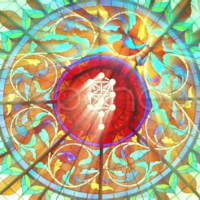Corpsey
bandz ahoy
Obligatory 'Beckett drove Andre the Giant to school' story
https://www.snopes.com/fact-check/andre-the-giant-samuel-beckett/
https://www.snopes.com/fact-check/andre-the-giant-samuel-beckett/
You've got fifteen minutes. Go.No, but I'd like to by all means.

 bibliot3ca.com
bibliot3ca.com
A last word about the Purgatories. Dante’s is conical and consequently implies culmination. Mr. Joyce’s is spherical and excludes culmination. In the one there is an ascent from real vegetation —— Ante-Purgatory, to ideal vegetation — Terrestial Paradise: in the other there is no ascent and no ideal vegetation. In the one, absolute progression and a guaranteed consummation: in the other, flux —— progression or retrogression, and an apparent consummation. In the one movement is unidirectional, and a step forward represents a net advance: in the other movement is non-directional — or multi—directional, and a step forward is, by definition, a step back. Dante’s Terrestial Paradise is the carriage entrance to a Paradise that is not terrestial: Mr. Joyce’s Terrestial Paradise is the tradesmen’s entrance on to the sea-shore. Sin is an impediment to movement up the cone, and a condition of movement round the sphere. In what sense, then, is Mr. Joyce’s work purgatorial? In the absolute absence of the Absolute. Hell is the static lifelessness of unrelieved viciousness. Paradise the static lifelessness of unrelieved immaculation. Purgatory a Hood of movement and vitality released by the conjunction of these two elements. There is a continuous purgatorial process at work, in the sense that the vicious circle of humanity is being achieved, and this achievement depends on the recurrent predomination of one of two broad qualities. No resistance, no eruption, and it is only in Hell and Paradise that there are no eruptions, that there can be none, need be none. On this earth that is Purgatory, Vice and Virtue —— which you may take to mean any pair of large contrary human factors ——- must in turn be purged down to spirits of rebelliousness. Then the dominant crust of the Vicious or Virtuous sets, resistance is provided, the explosion duly takes place and the machine proceeds. And no more than this; neither prize nor penalty; simply a series of stimulants to enable the kitten to catch its tail. And the partially purgatorial agent? The partially purged.
No. I'm still awake. And I actually feel surprisingly fired up. I think just being awake in the day gives you a bit more energy, even if you're knackered.
anybody read murphy? ran into an ultra cheap copy at the shop today
Yeah, 'Molloy' went straight to the top of my favourite books. I couldn't really tell you why or even what it was about, but I was bowled over by it.They were all good on pretty much the same terms, which Molloy hit the deepest and Godot with the most intensity. But that thing that they all did I haven't found in anything else.
A very fashionable man.I keep seeing this and thinking he's checking his smartphone

Yeah, 'Molloy' went straight to the top of my favourite books. I couldn't really tell you why or even what it was about, but I was bowled over by it.
